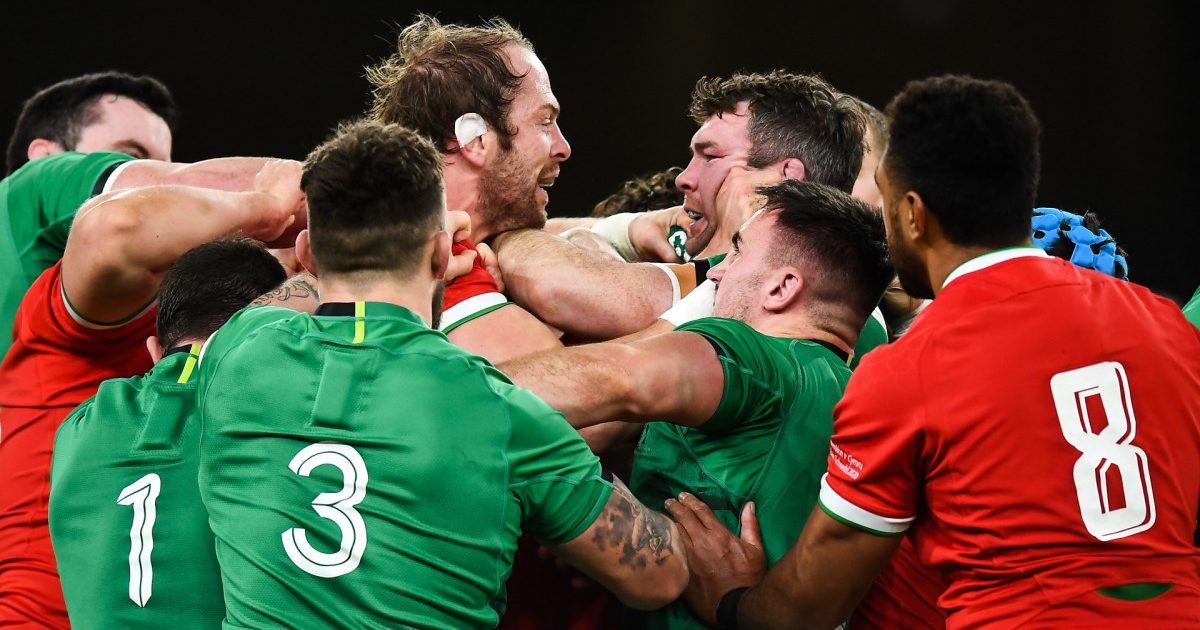Woeful Wales - what has happened to last year's No.1 ranked rugby team?

Wales, Six Nations Grand Slam champions last year, are currently experiencing an alarming form slump that has seen them lose six successive Tests.
Here, the PA news agency identifies some of the areas under scrutiny.
What are the harsh facts?
It is only 15 months ago that Wales were officially ranked number one team in the world. Victory over World Cup warm-up opponents England in Cardiff confirmed their rise to the summit – albeit for only a fortnight before New Zealand reclaimed top spot – after a run of 15 wins in 16 games that included a Six Nations title triumph and Grand Slam. In stark contrast, Wales are currently on a six-Test losing run, which is their worst results sequence since 2012, have conceded 18 tries during that period and fallen to eighth in the world. Defence coach Byron Hayward, meanwhile, left his role last week after just 12 months in the job.
What are the problem areas that need solving?
Discipline, for a start. Single-figure penalty counts are widely viewed as being the requirement at Test level, but Wales conceded 16 against Guinness Six Nations opponents Scotland last month, then 18 in losing their Autumn Nations Cup opener to Ireland, prompting centre Jonathan Davies to state: “Our indiscipline needs to be addressed immediately.” The penalties are bad enough, but Wales, with the honourable exception of back-row newcomer Shane Lewis-Hughes, are being bossed at the breakdown area, their lineout is misfiring and the scrum has also been under pressure. Rugby is a simple game about doing the basics well, but Wales are currently falling short in those critical areas.
Do Wales possess the playing personnel to turn things around?
Twelve of the starting line-up on duty in last year’s World Cup semi-final against South Africa were involved in the Dublin loss to Ireland three days ago, so there is no question that Wales have the quality. Factor in injuries to players like Tomos Williams, Gareth Anscombe, Ken Owens, Josh Navidi and Ross Moriarty, and the cupboard is certainly not bare. There are some quality younger players in the ranks, such as Callum Sheedy and Louis Rees-Zammit, awaiting starts that should come against Georgia next weekend, so there is cause for optimism. No team becomes a bad one overnight.
Is pressure mounting on head coach Wayne Pivac?
Inevitably, given that Wales have won only two games – against Italy and the Barbarians – since he succeeded Warren Gatland last November. Professional sport is a results-driven business, and there can be no hiding from reality. In fairness, Pivac has not done that, and he fully accepts that things are not good enough at the moment. If Pivac was managing a football club, time might already have run out, but the Welsh Rugby Union knows and understands he has a long-term plan towards the 2023 World Cup, and knee-jerk reactions are not expected. During Gatland’s 12-year reign, Wales won four Six Nations titles, three Grand Slams and reached two World Cup semi-finals, so high standards have been set.
Is life about to get any easier?
No. Wales should at least end the losing run when they tackle Georgia in Llanelli, but recently-crowned Six Nations champions England are then next up. An Autumn Nations Cup play-off – potentially against Italy or Fiji – will end the year, before Six Nations business begins in February, with Wales hosting Ireland, and facing Scotland away before entertaining England. Away games against Italy and France follow, prior to a scheduled summer tour to play Tests against All Blacks conquerors Argentina. Fortunately for Wales, the 2023 World Cup draw seedings are already locked in – they were determined on world rankings in January this year before the coronavirus pandemic – and Wales are in the top band alongside South Africa, New Zealand and England. Some light relief.

































